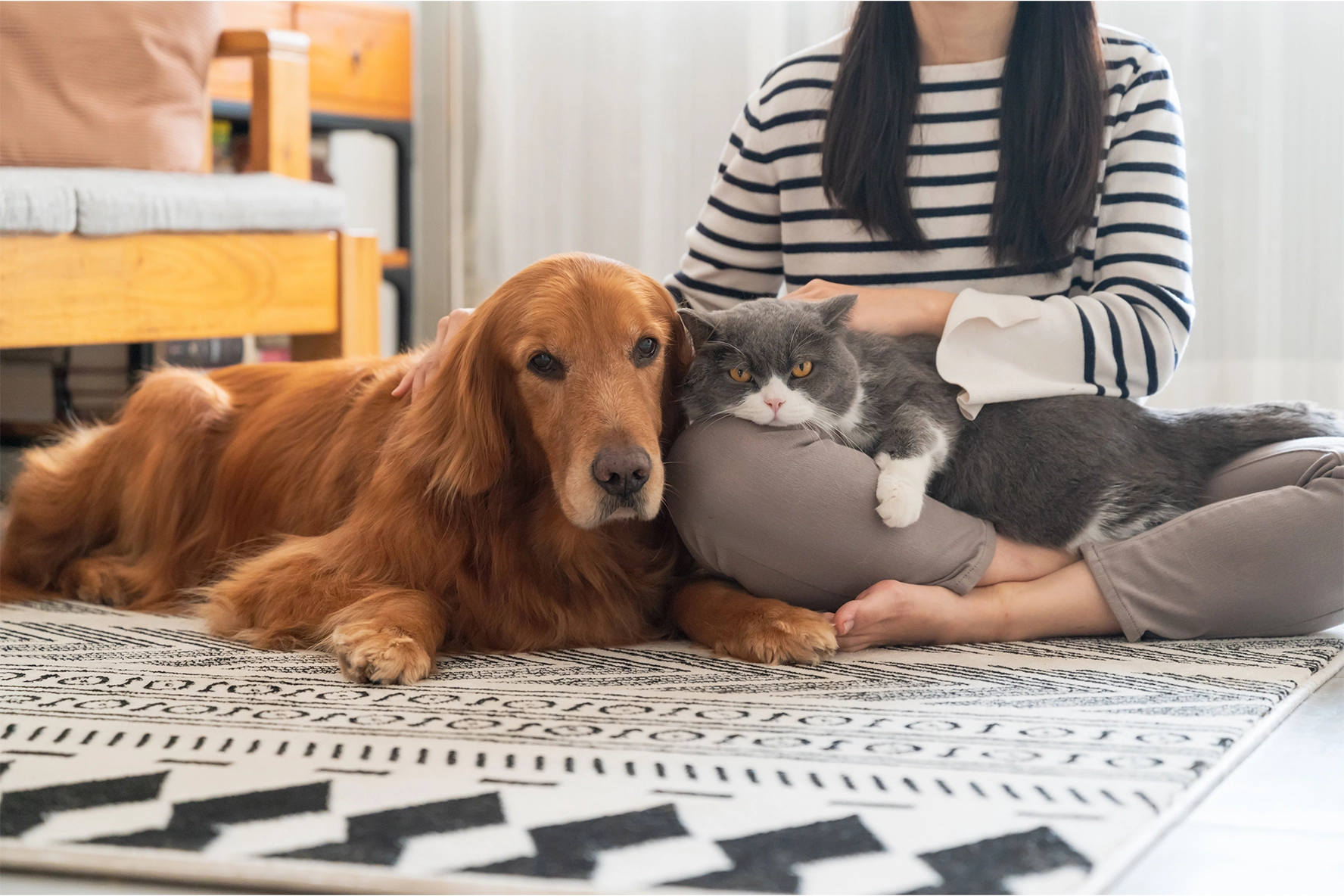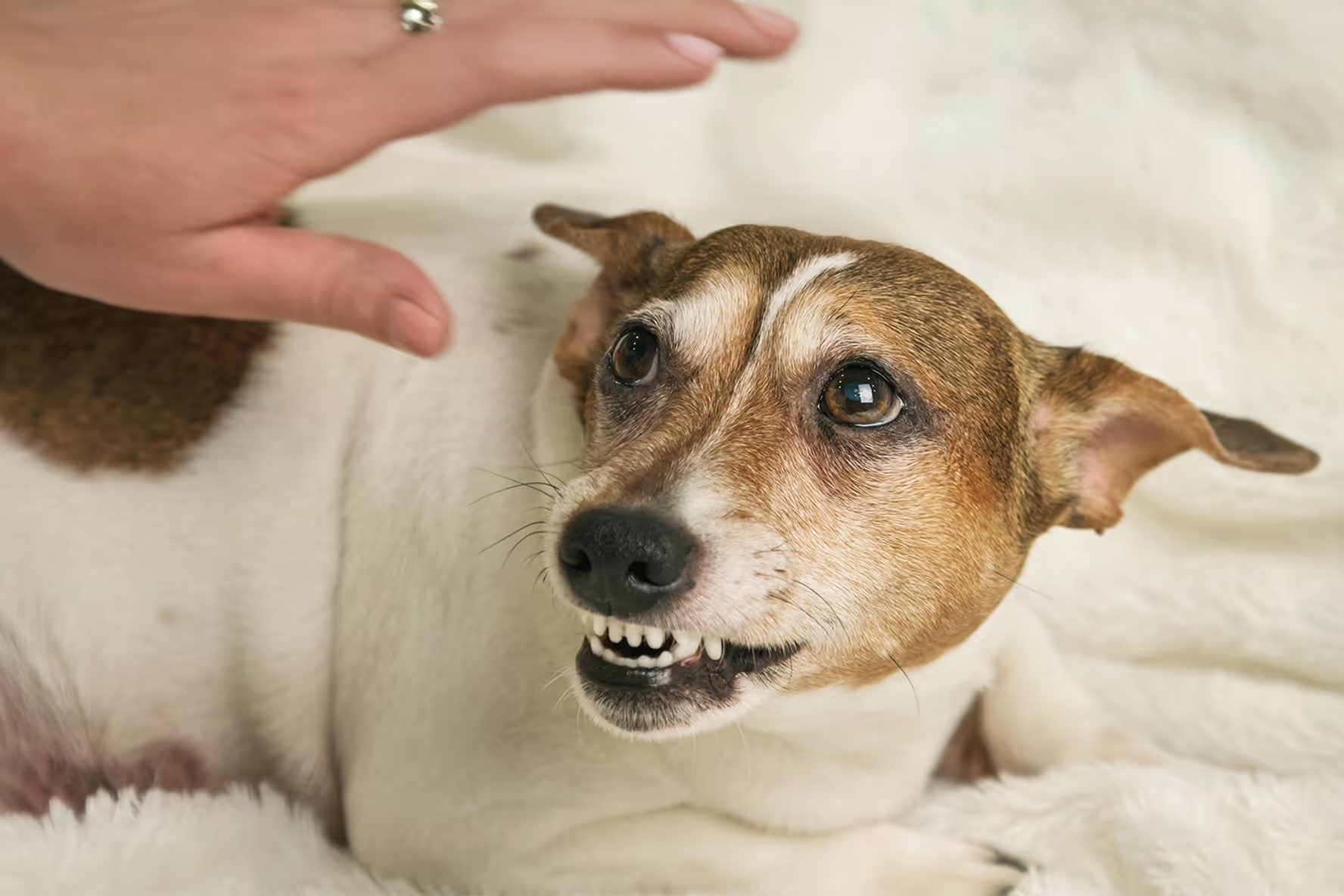The only problem is that a lot of those product companies don’t think about how their formulas may impact more than just your grass.
Research has shown that certain chemicals in some of these lawn care products have been directly linked to an increase in canine cancers like lymphoma and bladder cancer.
How does lawn care impact my dog’s chances of developing cancer?
It’s probably not a surprise to you that chemical lawn care can have an impact on anything it comes into contact with, not just the grass underneath it. You, your dog, any children, and wild animals that come into contact with treated lawns can be directly impacted by it.
One of the main reasons for the danger comes from a commonly used chemical herbicide called 2,4-Dichlorophenoxyacetic acid (2 4-D). Which has been directly linked to a 70% higher risk for canine malignant lymphoma by the Journal of Environmental Research in 2012.1-8
But 2 4-D isn’t the only dangerous chemical. According to a newsletter by beyondpesticides.org “Of 30 commonly used lawn pesticides, 19 have studies pointing towards carcinogens, 13 are linked with birth defects, 21 with reproductive effects, 15 with neurotoxicity, 26 with liver or kidney damage, 27 are sensitizers and/or irritants and 11 have the potential to disrupt the endocrine (hormonal) system.”2
What homeowners should look out for in lawn care products
When you have control over your own lawn care, there are plenty of ingredients to avoid adding to your lawn. The problem is that lawn care products are not required to list all of their ingredients, only the active ingredients, which means that there is always a chance that even when you do everything right, you are still endangering the people and animals that come in contact with your lawn.3
That being said, some active ingredients you absolutely want to stay away from aside from 2 4-D would be:
- Bifenthrin: commonly used in grub and insect control products. It’s listed as a possible carcinogen by the U.S. Environmental Protection Agency.
- Glyphosate: an herbicide that is non-selective, it kills plants by taking away nutrients and weakening the immune system. It has been linked to kidney disease, cancer, and birth defects. It’s commonly found in Round-Up weed killer.
- Atrazine (1,2): a widely used herbicide in the U.S. that was banned in Europe in 2004, it’s been linked to being an endocrine disruptor.4
Almost any chemical product that is designed to kill an aspect of your natural lawn—insecticide, pesticide, herbicide, etc.—will be a detriment to your and your dog’s health in the long run. Even many chemical fertilizers are dangerous as well. If you are trying to put your pet first, changing your lawn care from anything chemical-based to a more natural and organic method of care would be best.1-8
Other options for lawn care
Though the challenge of developing an organic lawn care system may prove to be more time consuming than buying a bottle of Round-Up and calling it a day, it is better for everyone in direct contact with your yard and for the future health of the planet as well.
To transition to a more natural lawn care system will take a bit of research on your part, but once you know what you’re looking for and what needs you want to be met, it’s as simple as keeping the ingredients on hand.1,3,5,6,8
Think of the products that you use on a regular basis. What are they for? What are they doing to your lawn? Then it’s as easy as Googling how to do that same thing naturally.
Weed killer? Replace with corn gluten meal (a natural weed killer and fertilizer).
Pest control? Try diatomaceous earth and boric acid.
A little bit of time spent researching could possibly add years to your pet’s life.
What if you don’t have control over your own lawn? Or the other places your dog interacts with?
There are many pet owners who live in homes that are not their own, either townhomes or apartment complexes, where they don’t have any say over their lawn care. Not to mention that it is an almost impossible challenge to try to get everyone whose lawn your dog comes into contact with to make the switch to a natural method of lawn care.
However, the first step would be to try. Reach out to your landlords and ask if they would consider a natural lawn care system rather than a chemical-based one. It never hurts to put out the information that you now know and hope for a step in the right direction. The worst that can happen is they continue using their current method of lawn care, the best is they might look into what it would take for them to change—or better yet, actually make that change.
But changing where you live still won’t change the entirety of the world your dog interacts with.
There will always be places your pet visits that may be dangerous to them. Whether you’re out for a walk and they step onto a stranger’s yard, or you take them to a public park. It’s an unavoidable reality. In modern society, simplicity often rules our everyday decisions and overrides many safety concerns, especially when those concerns aren't shared by everyone. Despite how much effort you put into your pet's safety, it's almost impossible to prevent all dangerous contact.
To keep your dog safe when you live somewhere that maintains the lawn with chemicals or you walk somewhere that uses chemicals, it will take a few more steps. A majority of the danger from chemical lawn care products comes from ingesting them. Your dog will likely clean their paws and any part of their body that is bothering them with their tongue, which is often how the lawn care products enter their system and become a threat.
When you get home from a walk, clean your dog's paws, either with a towelette designed for dogs' paws, or a wet cloth with a safe soap. And bathe your dog more regularly. This can be with a full bath or by wetting a cloth and cleaning off their fur, especially when they roll in a treated lawn.1,3-8
ImpriMed wants to help
It is unfortunate to know that we don’t have control of everything our dog comes into contact with, even if we do everything we can there is always that chance that we will miss something important.
While we know that chemical lawn care is dangerous, there are still a lot of people out there that have no interest in changing their system. And that can impact our dogs’ health.
If your dog has developed canine lymphoma, from lawn care or otherwise, ImpriMed is here to help. We are a state-of-the-art lab that uses AI technology to create an individualized treatment plan for dogs with lymphoma.
Your vet will take a sample of your dog’s cancer cells and get them to our labs to be tested against different anticancer drugs to see which would have the greatest and most efficient impact on your dog’s health. ImpriMed also creates a Personalized Prediction Profile to outline when remission would likely be achieved, and when a relapse may happen.
Find a partnered vet near you, or find out how to get your vet involved with ImpriMed.



